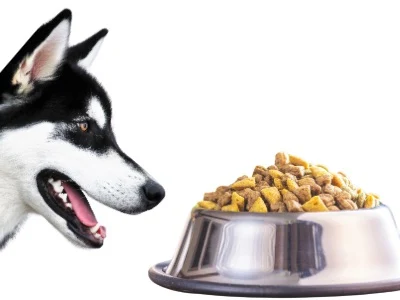Siberian Huskies: Nutrition Tips and Best Foods
Siberian Huskies require a well-balanced diet tailored to their unique needs to stay healthy and happy. Their active lifestyle and genetic makeup demand a diet rich in:
• Protein from high-quality sources like meat, fish, and poultry for muscle development and energy
• Fats from animal sources and oils rich in omega-3 and omega-6 fatty acids for energy and healthy skin and coat
• Complex carbohydrates like sweet potatoes, brown rice, and oats for energy and digestive health
• Vitamins and minerals from fruits, vegetables, and supplements for overall health and immune function
• Plenty of fresh water to stay hydrated, especially given their active nature
A balanced diet is crucial to keeping Siberian Huskies in peak condition. By understanding their nutritional needs, owners can provide the best food to support their furry friend's health and happiness.
When selecting food for your Siberian Husky, prioritize high-quality ingredients and avoid fillers and artificial additives. For a high-quality dry kibble, choose a premium brand that:
• Lists meat as the first ingredient
• Contains a balanced mix of protein, fats, and carbohydrates
Recommended brands include Blue Buffalo Wilderness, Taste of the Wild, and Orijen. Alternatively, consider a raw diet that provides nutrients in their most natural form. A raw diet should include:
• Raw meat
• Bones
• Fruits
• Vegetables
However, consult with a veterinarian to create a balanced raw diet plan. By prioritizing high-quality ingredients and avoiding fillers and artificial additives, you can ensure your Husky receives the nutrients they need to thrive.
Homemade Meals
Preparing homemade meals for Siberian Huskies allows for a balanced diet with controlled ingredients. Key ingredients include lean meats, fish for omega-3 fatty acids, vegetables, fruits in moderation, and complex carbohydrates. To ensure a healthy diet, follow these nutrition tips:
• Maintain a consistent feeding schedule, feeding twice a day to prevent overeating and establish a routine.
• Monitor portion sizes to prevent obesity and malnutrition, adjusting based on age, weight, and activity level.
• Avoid harmful human foods, including chocolate, grapes, raisins, onions, garlic, and foods high in salt or sugar.
• Introduce new foods gradually over a week to prevent digestive issues.
• Regularly monitor health, including weight, coat condition, and energy levels, and consult a veterinarian to adjust the diet accordingly.
• Monitor portion sizes to prevent obesity and malnutrition, adjusting based on age, weight, and activity level.
• Avoid harmful human foods, including chocolate, grapes, raisins, onions, garlic, and foods high in salt or sugar.
• Introduce new foods gradually over a week to prevent digestive issues.
• Regularly monitor health, including weight, coat condition, and energy levels, and consult a veterinarian to adjust the diet accordingly.
Common Dietary Issues and Solutions
Common dietary issues can affect a Husky's health and wellbeing. Food sensitivities to ingredients like beef, dairy, or wheat can cause skin allergies, itching, and ear infections. Hypoglycaemia, or low blood sugar, can occur due to a lack of complex carbohydrates. Zinc deficiency is also common, leading to skin problems, poor coat condition, and immune system issues.
To address these issues: • Switch to a high-quality, grain-free diet with novel protein sources like fish or lamb. • Add supplements like omega-3 fatty acids, probiotics, and zinc-rich ingredients. • Monitor food intake and adjust portions to prevent overfeeding and obesity. By making informed dietary choices, you can help your Husky thrive and enjoy a long, healthy life.
1. Food Allergies
Huskies can develop food allergies, commonly to ingredients like chicken, beef, or grains. Symptoms include itching, ear infections, and gastrointestinal issues. If you suspect an allergy, try an elimination diet or consult your vet for allergy testing.
2. Sensitive Stomachs
Some Huskies have sensitive stomachs and may require a diet with easily digestible ingredients. Look for foods with limited ingredients and avoid common allergens.
3. Obesity
Given their energetic nature, obesity can lead to serious health problems. Monitor portion sizes, provide regular exercise, and choose low-calorie treats.
Sample Diet Plan for a Siberian Husky
- 1 cup of high-quality dry kibble (protein-rich)
- 1 tablespoon of fish oil (Omega-3 supplement)
- Fresh water
Evening Meal:
- 1 cup of high-quality dry kibble or raw meat (balanced with vegetables and carbs)
- 1/2 cup of mixed vegetables (carrots, spinach)
- Fresh water
Snacks and Treats:
- Small pieces of apple or blueberries
- Natural dog treats (low in calories and free from artificial additives)
Conclusion
Feeding your Siberian Husky a balanced and nutritious diet is vital for their health, energy, and overall well-being. By understanding their nutritional needs, selecting high-quality foods, and following the provided tips, you can ensure that your Husky thrives. Regular veterinary check-ups will help to monitor their health and make any necessary dietary adjustments. Your commitment to your Husky's diet will lead to a happier, healthier companion.
- American Kennel Club (AKC): The AKC provides detailed guidelines on feeding and nutrition for dogs, including breed-specific recommendations for Siberian Huskies. Reference link: [American Kennel Club - Feeding Siberian Huskies](https://www.akc.org/expert-advice/nutrition/siberian-husky-feeding-guide/)







0 Comments